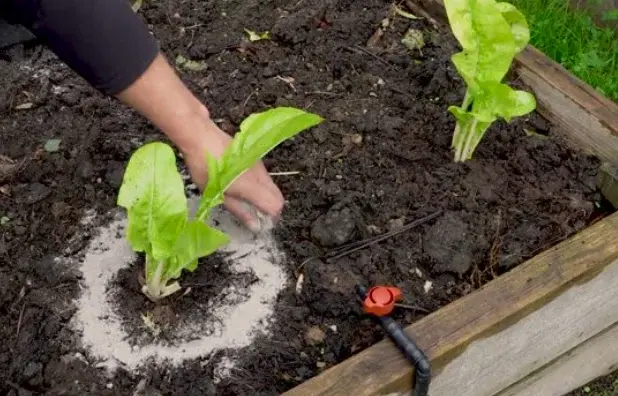Adding charcoal ash to your garden can be a smart way to improve soil quality and support plant health. It offers a natural source of potassium, calcium, and other minerals, which can improve soil quality and help plants grow stronger. However, using it correctly is essential to make the most of its benefits. These minerals can help balance soil pH, add nutrients, and improve soil structure, making it ideal for gardens with heavy clay or overly acidic soils.
In this guide, we will understand How to Use Charcoal Ash in Garden and explore the benefits, essential tips and the best ways to use charcoal ash in the garden. So let’s get started!
Tools Required
Before applying charcoal ash to your garden, gather the following tools:
Gardening Gloves: To protect hands while handling ash.
Rake or Trowel: To evenly distribute ash into the soil.
Watering Can or Hose: For watering the ash into the soil.
Dust mask (to avoid inhaling fine particles).
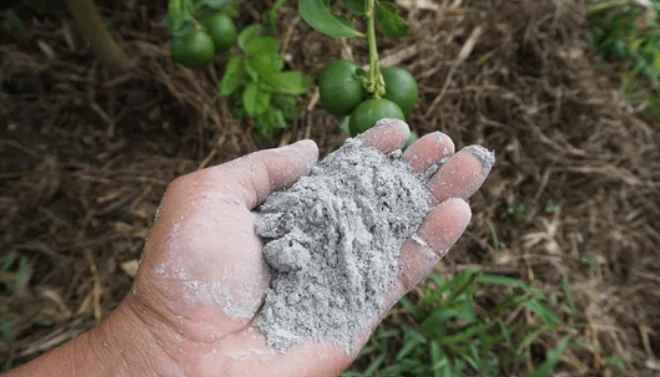
Source: istock
Can you put Charcoal ash in Garden
Yes, you can put charcoal ash in the garden, but it’s best to use it sparingly. Charcoal ash from untreated, natural wood adds potassium and trace minerals to the soil, which helps plant growth. However, too much ash can make the soil alkaline, so avoid adding it around acid-loving plants like blueberries or azaleas. Spread a thin layer over your garden soil or add a small amount to compost to balance pH without overdoing it.
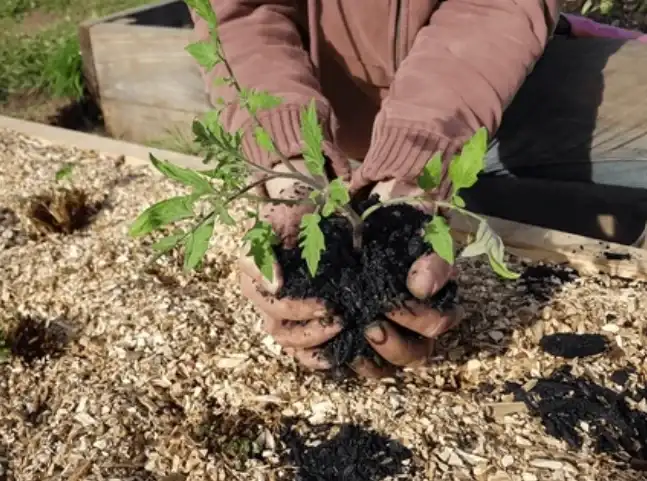
Source: istock
What is Charcoal Ash and Why Use It?
Charcoal ash comes from burned charcoal, typically used in grilling or fires. Unlike wood ash, charcoal ash doesn’t have a high nutrient content but is still packed with useful minerals that can benefit your garden. Here are some benefits:
Benefits of Charcoal Ash for Gardening
Adding charcoal ash to your garden provides several valuable benefits:
Soil Texture: Charcoal ash improves the soil texture, it helps in breaking down the compacted soil and improve its texture. This allows the roots of the plants to grow more freely.
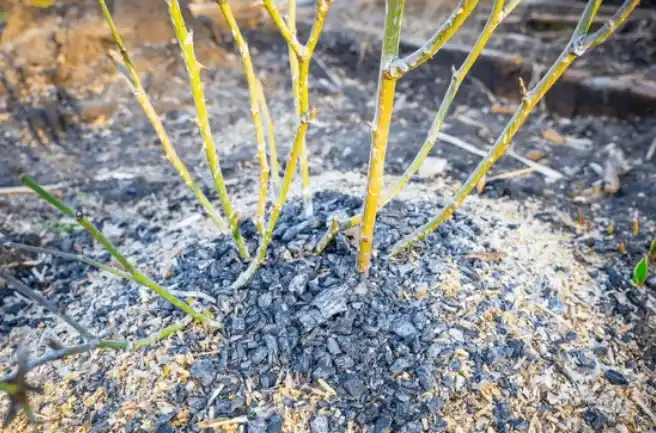
Source: istock
Natural Fertilizer: Many gardeners wonder, “Is charcoal ash good for plants?” It is indeed a good fertilizer, as it adds essential minerals like potassium and calcium, which are beneficial for flower beds, lawns, and even some fruits and vegetables.
Increases Soil pH: Charcoal ash raises soil pH, making it an ideal option for acidic soils. However, avoid using it in gardens where plants thrive in acidic conditions, such as azaleas, blueberries.
Improves Soil Drainage: Especially useful in heavy soils like clay, charcoal ash can improve the soil drainage.
Note: Avoid using ash from charcoal that contains chemicals, like quick-light charcoal, as it can harm plants.
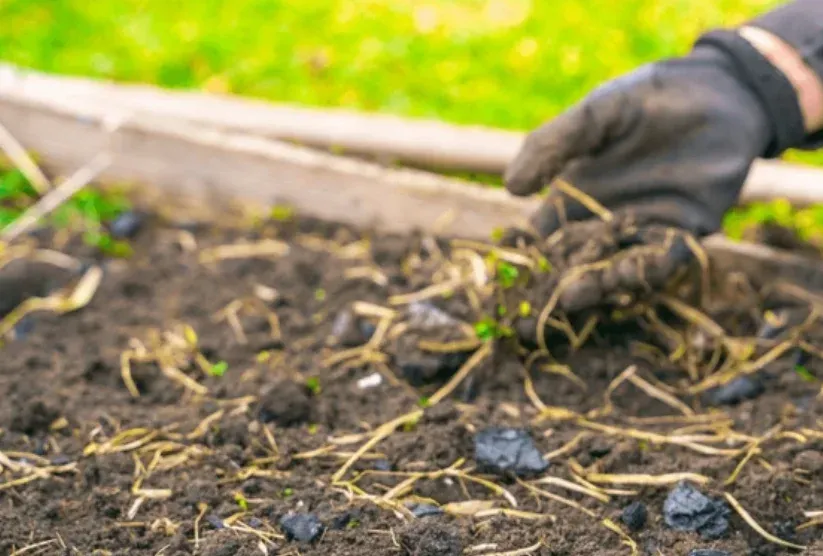
Source: istock
How to use Charcoal ash in Garden
To use charcoal ash in your garden, sprinkle it lightly over garden beds or mix it into the top layer of the soil. Charcoal ash adds potassium and raises soil pH, which benefits plants that like slightly alkaline soil, like tomatoes, carrots, and roses. Avoid using too much ash in one spot as it can make the soil too alkaline and harm certain plants. Also, keep ash away from acid-loving plants like blueberries and azaleas, which need more acidic soil.
If you’re adding ash to compost, then mix it in small amounts and avoid overusing it. Always make sure the ash is from untreated, chemical-free charcoal for safe gardening.
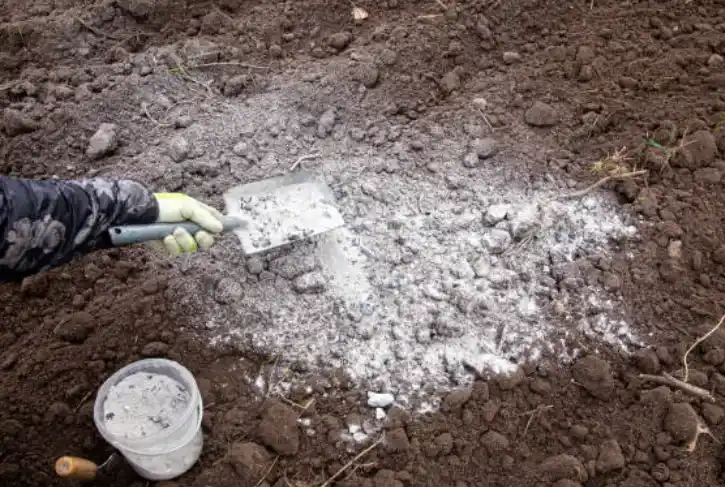
Source: istock
How to Use Charcoal Ash in your Garden
To use charcoal ash effectively, follow these simple steps:
Add Directly to Soil:
Sprinkle charcoal ash onto your garden soil. A thin layer is enough to avoid nutrient imbalance. Rake the ash into the soil, helping it mix well. Avoid using too much, as excessive ash can alter the pH too much and harm the plant roots. Sprinkle ash lightly over flower beds, around the base of trees, or on lawns, and rake it into the top layer of soil.
In Compost:
Charcoal ash can be added to compost, helping to balance the pH. Mix a small amount of charcoal ash in your compost. The ash adds potassium, by making the garden compost beneficial for plants healthy growth that may later be used as fertilizer. Only add a little to maintain a balanced nutrient mix in your compost. Charcoal ashes work well when combined with kitchen waste and other nitrogen-rich materials.
For Lawns and Grass:
Charcoal ash can benefit lawns by providing trace nutrients. Spread a thin layer of ash over the grass and water it. This can give grass an extra boost, though avoid over-applying as it can increase soil alkalinity. Only use ash from untreated wood or lump charcoal. Ashes from BBQ briquettes, treated wood, or chemically altered charcoal can contain substances harmful to plants.
As a Pest Deterrent:
Scatter a thin layer around the base of plants to deter the pests. Charcoal ash works as a natural pest control, especially for slugs and snails.
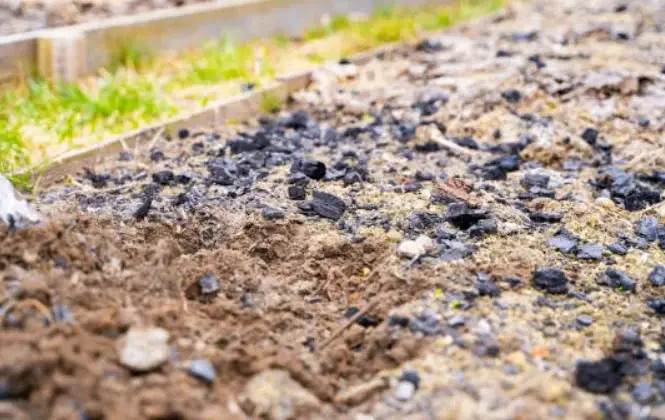
Source: istock
What Plants Benefit from Charcoal Ash in the Garden
Plants that prefer slightly alkaline soil benefit most from charcoal ash. Vegetables like tomatoes, carrots, as well as flowering plants like roses, benefit from a bit of added ash because it raises the soil pH and provides potassium, which supports root and flower growth. Root crops, like beets and turnips, also grows well and get benefit from the minerals in ash, which improve soil structure and drainage. However, it’s best to avoid using charcoal ash around acid-loving plants like blueberries and azaleas, as they prefer more acidic soil. Just sprinkle a little ash around the base of the plants or mix it lightly into the soil to see the benefits. Remember, too much ash can over-alkalize the soil and harm the plants.
When to Avoid Using Charcoal Ash
Though it can be beneficial, there are a few things that need to be avoided when using charcoal ash as it might not be suitable:
Avoid applying charcoal ash around acid-loving plants, as it raises soil pH.
Don’t use charcoal ash near seedlings or delicate plants, as it can overwhelm them.
Avoid adding the ash to wet soil, as it will create a thick, muddy layer that can suffocate plants.
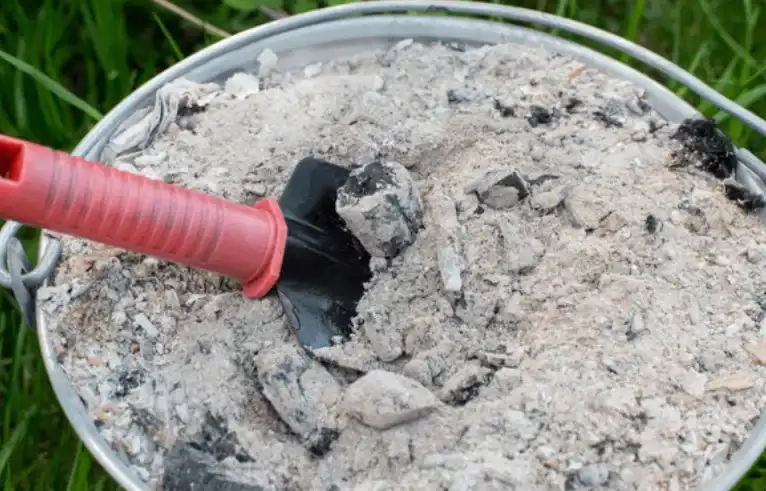
Source: istock
How much Ash to put in Garden
When adding ash to your garden, start small—about a handful or two (roughly half a cup) per square foot of soil is a safe amount. Too much ash can make your soil too alkaline, so it’s best to add it gradually and mix it into the top few inches of soil. Use it especially around plants that prefer a slightly higher pH, like tomatoes or root vegetables. Avoid adding ash to soil around acid-loving plants like blueberries. If you’re adding ash to your compost, keep it to about one cup for every compost material. Always make sure the ash is from untreated wood or natural charcoal to avoid using any harmful chemicals.
How to use Charcoal ashes in the Garden
To use charcoal ashes in the garden, start by sprinkling a light layer over your garden beds or gently mixing it into the soil. Charcoal ash boosts potassium levels and can help raise the soil’s pH, which is great for plants that prefer slightly alkaline soil, like roses, carrots, and tomatoes. Be careful not to use too much in one spot, as excess ash can make the soil too alkaline.
Avoid spreading ashes around acid-loving plants like blueberries and azaleas, which need more acidic soil. You can also add small amounts of ash to compost, mixing it well for balanced nutrients. Always use ash from untreated charcoal to avoid using harmful chemicals in the garden.
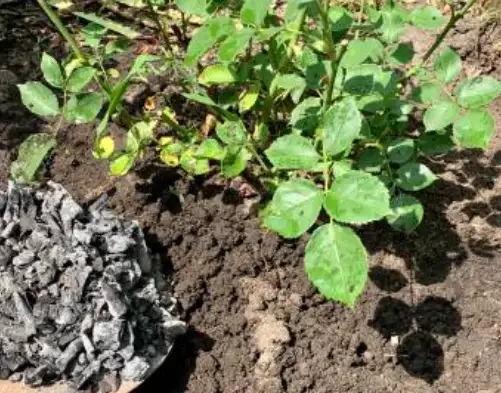
Source: istock
Conclusion
Charcoal ash can be a beneficial for enriching the soil and boosting the plant growth in your garden. From improving the soil texture to repelling the pests and adding beneficial nutrients in the soil or compost. It has multiple uses that can improve your plants’ health. Sprinkle two pinch of charcoal ash around the plant or above the soil, avoid using it around the acid-loving plants as it will raise the soil pH. With a little care, you can make your garden thrive by properly neutralizing the natural minerals in charcoal ash. Hope it helps!
Frequently Asked Questions (FAQs) about How to Use Charcoal Ash in Garden
Are charcoal ashes good for plants?
Yes, it can be helpful for boosting the plant growth. Charcoal ashes add minerals to the soil that can improve the plant health.
Is charcoal good for tomato plants?
Yes, add little wood ash from natural charcoal tomatoes thrives well when potassium and calcium are present in the soil.
Is wood ash better than charcoal ash for gardens?
Wood ash generally contains more nutrients, making it better for most gardens compared to charcoal ash.
How much ash should I add to compost?
Add only a small amount—too much ash can raise compost pH too high and can be harmful for plant.
Is charcoal ash good for roses?
Charcoal ash can be used around rose bushes as it provides essential minerals. Ensure it’s applied in balance amount, as excessive ash can disrupt the soil pH.
Are charcoal ashes good for lawns?
Yes, charcoal ashes can help strengthen the lawn grass by improving soil pH and providing potassium. Just make sure to apply them lightly.
Is charcoal ash a good fertilizer?
Yes, charcoal ash is a good fertilizer for many plants, providing essential nutrients like potassium and calcium. However, it should be used properly to avoid harming the plants that prefer acidic soil.
Is Kingsford charcoal ash good for plants?
No, Kingsford and other briquettes often contain chemicals and should not be used in gardens.
Can charcoal ashes be used in compost?
Yes, charcoal ash can improve the compost quality, as helps in balancing the acidic components in the compost. Mixing it with kitchen waste and garden trimmings works well.
Can you dump charcoal ash on the ground?
It’s better to spread ash sparingly in the garden or compost, rather than dumping it in one spot, to avoid overwhelming the soil.
Can I put charcoal ashes in my garden?
Yes, you can add charcoal ash to your garden as long as it’s natural wood ash and not treated or with added chemicals, as it adds potassium.
What happens if you put too much ash on the garden?
Overuse can make soil too alkaline and may harm plants, so always apply ash sparingly.
Which plants do not like ash?
Acid-loving plants like blueberries and azaleas don’t like ash since it raises soil pH.
Is ash good for tomato plants?
Yes, wood ash adds potassium, a nutrient tomatoes need, but use it sparingly to avoid raising the soil pH too much.

